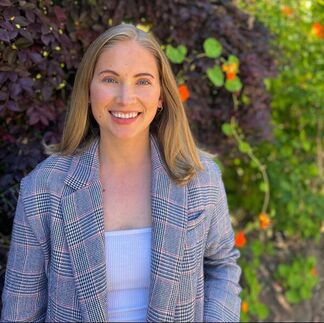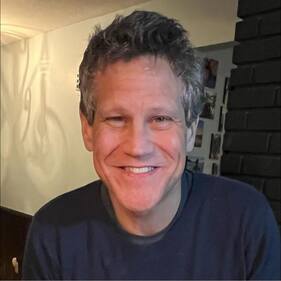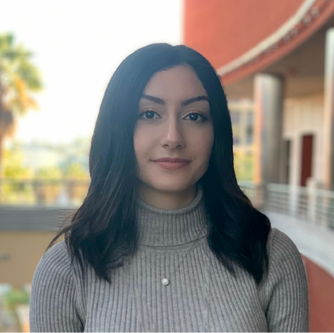|
by Olivia O'Connell (2023-2024 Communications Officer)
For many, the week or so break that most students have during the end of December and/or beginning of January feels like it should be an opportunity to unwind, recharge, and find reprieve from the constant rush of assignments and work. Unfortunately, this often is less of a reality than one might expect. Applications, research, and other work may continue to pile up. Many of us may feel guilt or shame associated with “taking a break”, constantly worry about upcoming tasks, or even experience a sense of discomfort when taking a moment to slow down. Mindfulness, the practice of being consciously aware of the present moment, can be a powerful tool to make the most of our “time off” and bring balance into our lives. Mindfulness is a term that many of us are likely familiar with. Although the practice of mindfulness dates back centuries, it has more recently become popular within the psychological community through its usage in “third wave” cognitive-behavioral therapies such as Dialectical Behavioral Therapy (DBT) and Acceptance and Commitment Therapy (ACT). Mindfulness is a concept we may preach to clients or examine in our research, yet much less frequently do we actually make it a part of our practices of well-being as students and professionals. As noted previously, “breaks” are generally a foreign or unrealistic concept for most students due to the constant pressure of looming deadlines, academic responsibilities, and personal expectations. A key aspect of mindfulness is contact with the present moment. In other words, mindfulness prompts us to tune our awareness entirely to what is happening in the now. This can include internal private experiences such as thoughts, emotions, and physical sensations or aspects of our environments such as sights, sounds, or smells which we so often ignore. Rather than constantly thinking about things we wish we had done differently in the past or all of the things coming up in the future, mindfulness asks us to get out of our minds and into our lives. Acknowledge that is it okay to live in this exact moment and take a break, both physically and mentally. Allowing yourself to slow down, enjoy, and fully experience the present moment may very well help you be better equipped to handle any challenges of the upcoming semester/academic term. There are various mindfulness practices which can deepen our contact with the present moment and generally enhance the quality of our brief time away from school. Whether you are spending time at home or traveling during this break, it can be useful to find a quiet space to disconnect from academia and the hustle and bustle of everyday life. Engaging in activities which bring you joy such as reading a book, taking a walk outside, or cooking your favorite meal are all examples of ways to bring a sense of pleasure and calm while anchoring ourselves to the present. Consider taking a break from technology, setting boundaries for screen time, social media, and school/work-related emails. Instead, use this time to engage with family members, friends, or simply be immersed in your environment. Gratitude involves noticing and showing appreciation for aspects of your life that are meaningful and valuable to you. Mindfulness and gratitude are often thought to pair well together, as it asks to take the time to reflect on aspects of our life and academic journey which we are thankful for. Expressing gratitude, either through a private journal or in conversation with those who are important to you, can bring a sense of balance and well-being to our lives. Overall, it is important to be realistic and acknowledge what is in our control. While tasks may arise which impede your ability to take a “clean break,” we can still slow down and make the most of the time we do have. Taking the opportunity to create a mindful environment, engaging in hobbies or activities which bring us joy, taking a break from technology, and practicing gratitude are all ways to enhance the quality of your time away from academia. Furthermore, bringing some of these practices into our everyday lives can help students foster a sense of balance and presence which may have positive impacts both in our personal and professional lives.
0 Comments
 We asked the members of the 2023-2024 Student Committee to answer some questions about themselves to help you get to know who they are and what they do. What is your school, program, and year? The Wright Institute, Clinical Psychology Psy.D, Second Year Why psychology and the law? Psychology and the law meet at the intersection of healthcare, history, and social justice - three areas I am passionate about. Working at this intersection also provides opportunities to work at individual, community, and system levels, which I value in the pursuit of transformative justice. What is your favorite thing about your current graduate program? I love how social justice-minded and close-knit our community is. If you were not in graduate school what would you do? To be honest, I would probably still be in graduate school but studying something else. What advice do you have for those applying to graduate school? Do your research on the programs and geographical regions you are applying to in order to make sure they align with your interests and lifestyle. Then, get your materials together ahead of time so you aren't too stressed as the deadlines near. Once you submit, take a breath - you’ve got this! Coffee or tea? Coffee. Cats or dogs? Dogs. I have one named Doug - or Douglas when he's in trouble! What three words would you use to describe yourself? Adaptable, curious, and goofy. What is on the top of your bucket list? My dream is to bike-pack across Italy. What is the worst song, in your opinion? What Does the Fox Say. What is the weirdest thing in your home? A piece of a broken oar from my husband's years as a rower. Is cheesecake actually cheese pie? No. Explain your hot take on cheesecake. I don't know why but the phrase "cheese pie" does not sound appealing. I don't want to eat cheese pie but I do want to eat cheesecake!  We asked the members of the 2023-2024 Student Committee to answer some questions about themselves to help you get to know who they are and what they do. What is your school, program, and year? I am in the Doctor of Philosophy in Psychology Law & Public Policy program with concentration in trial consulting at California School of Forensic Studies at Alliant International University. Why psychology and the law? I was a commercial litigator for twenty years. The science behind juries and voir dire interested me, so I went back to school and started studying social science and its application to litigation. What is your favorite thing about your current graduate program? I appreciate the focus on the jurisprudence side of the empirical study of psychology. If you were not in graduate school what would you do? Trial consulting. What advice do you have for those applying to graduate school? Go for it. It is never too late and if you have passion for the material, you can manage the load. Coffee or tea? Coffee all day. Cats or dogs? Cats. What three words would you use to describe yourself? Eccentric, loyal, intense. What is on the top of your bucket list? Travel to Europe. What is the worst song, in your opinion? So many. So, so many. What is the weirdest thing in your home? A skeleton coat rack. Is cheesecake actually cheese pie? Yes. Explain your hot take on cheesecake. It's a plated fudge, if you will.  We asked the members of the 2023-2024 Student Committee to answer some questions about themselves to help you get to know who they are and what they do. What is your school, program, and year? I am a first year student in the M.S. in Forensic Psychology program at Cal State LA. Why psychology and the law? I am passionate about the intersection of psychology and the law because it offers a powerful avenue to drive positive societal change. This unique combination of fields can allow me to explore the depths of human behavior and cognition while also working towards shaping laws and policies that not only address legal complexities but also nurture understanding and compassion within society. What is your favorite thing about your current graduate program? The diverse backgrounds and close-knit community are my favorite aspects of my graduate program. If you were not in graduate school what would you do? If I was not in graduate school, I would probably be working full time and traveling whenever I could. What advice do you have for those applying to graduate school? To get as much guidance as possible, and from different people as well. It is essential to learn from others’ experiences; especially mentors or graduate students. Coffee or tea? Coffee. Cats or dogs? Cats. What three words would you use to describe yourself? Extroverted, ambitious, and determined. What is on the top of your bucket list? Getting my Ph.D. and becoming a professor. What is the worst song, in your opinion? Hmm.. I really could not say. What is the weirdest thing in your home? Although not a thing, my cat is definitely the weirdest creature (in the best way possible) in my home. Is cheesecake actually cheese pie? No. Explain your hot take on cheesecake. It is great |
About the Editor:
The American Psychology-Law Society (Division 41 of the American Psychology Association) Student Committee is composed of elected student leaders representing the interests of our student members. Categories
All
Archives
June 2024
|
|
Except where otherwise noted, content on this site is licensed under a Creative Commons Attribution 4.0 International license. Icons by Icons8
|
|

 RSS Feed
RSS Feed
